What Do Dobermans Eat? (WIld and Raw Diet)
Dobermans are a popular and intelligent dog breed known for their loyalty and guarding instincts. As a responsible Doberman owner, one of the most critical aspects of caring for your dog is providing them with a balanced and nutritious diet. This article will discuss the essential dietary needs of Dobermans, and what they should eat for optimal health.
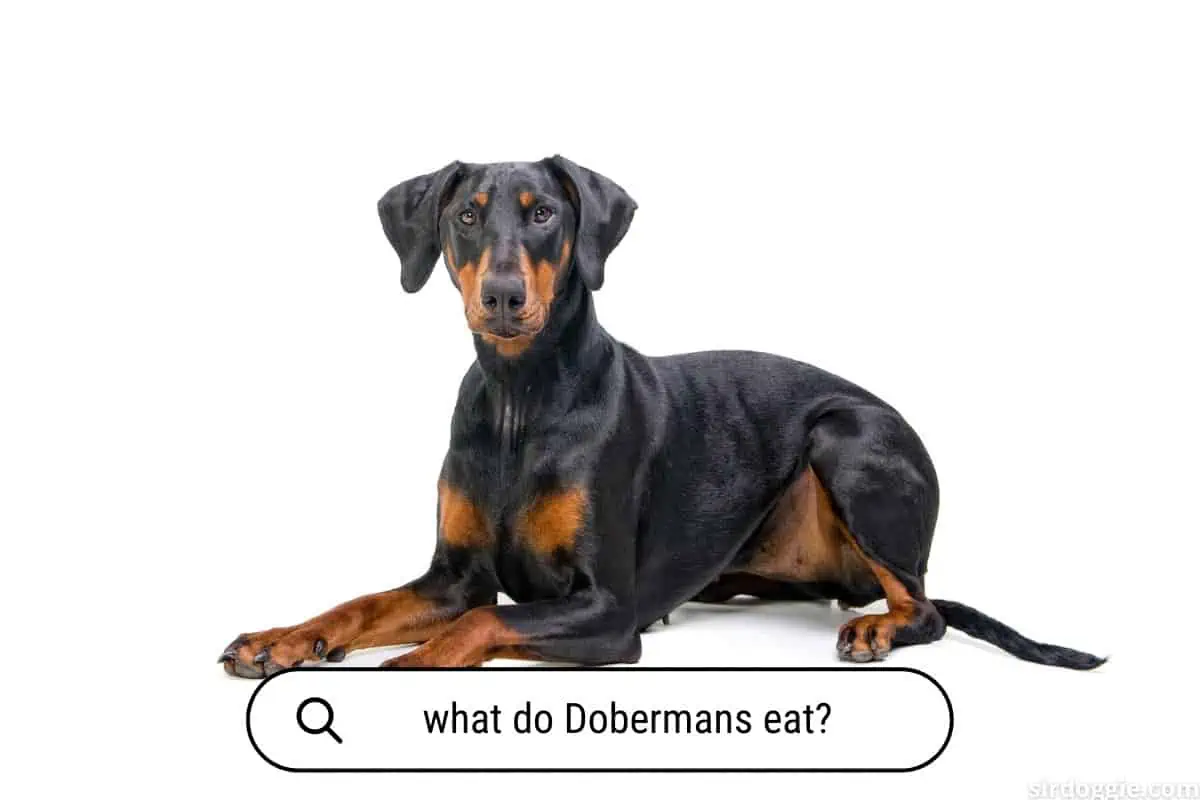
As carnivorous animals, Dobermans require a diet that is rich in protein, which is vital for maintaining their lean muscles and overall well-being. While dogs can benefit from a mixture of both animal and plant-based proteins, it’s crucial to understand the specific types and amounts that suit the unique needs of a Doberman.
Factors such as age, activity level, and individual health conditions can also influence a Doberman’s dietary requirements. Ensuring that your dog receives the right balance of nutrients will help them remain energetic, healthy, and ready to take on their daily routine with ease.
Doberman Dietary Requirements
Dobermans, like all dogs, have specific dietary requirements that must be met to ensure their health and well-being.
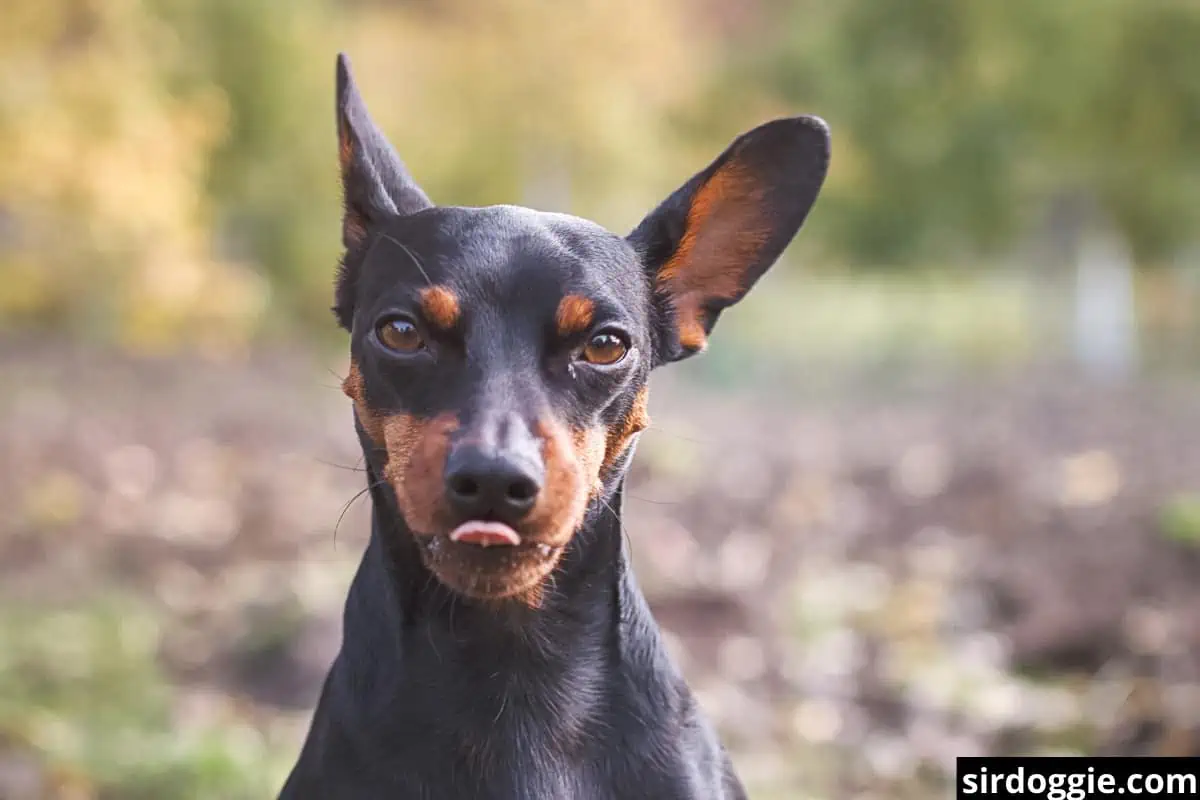
Protein Sources
Protein is an essential part of a Doberman’s diet. It helps build and maintain muscle mass and keep their coat healthy. Which protein sources are suitable for Dobermans? Some commonly used sources include:
- Chicken
- Beef
- Fish
- Turkey
- Lamb
It’s crucial to choose high-quality proteins and rotate sources to provide a balanced diet.
Fats and Carbohydrates
Fats are necessary for a Doberman’s energy levels and ensuring they maintain a healthy coat. What kind of fats should be included in their diet? Some suggestions are:
- Chicken fat
- Fish oil
- Flaxseed oil
Carbohydrates provide additional energy but should be chosen carefully. Consult with your veterinarian to determine the appropriate carbohydrate sources for your Doberman’s needs.
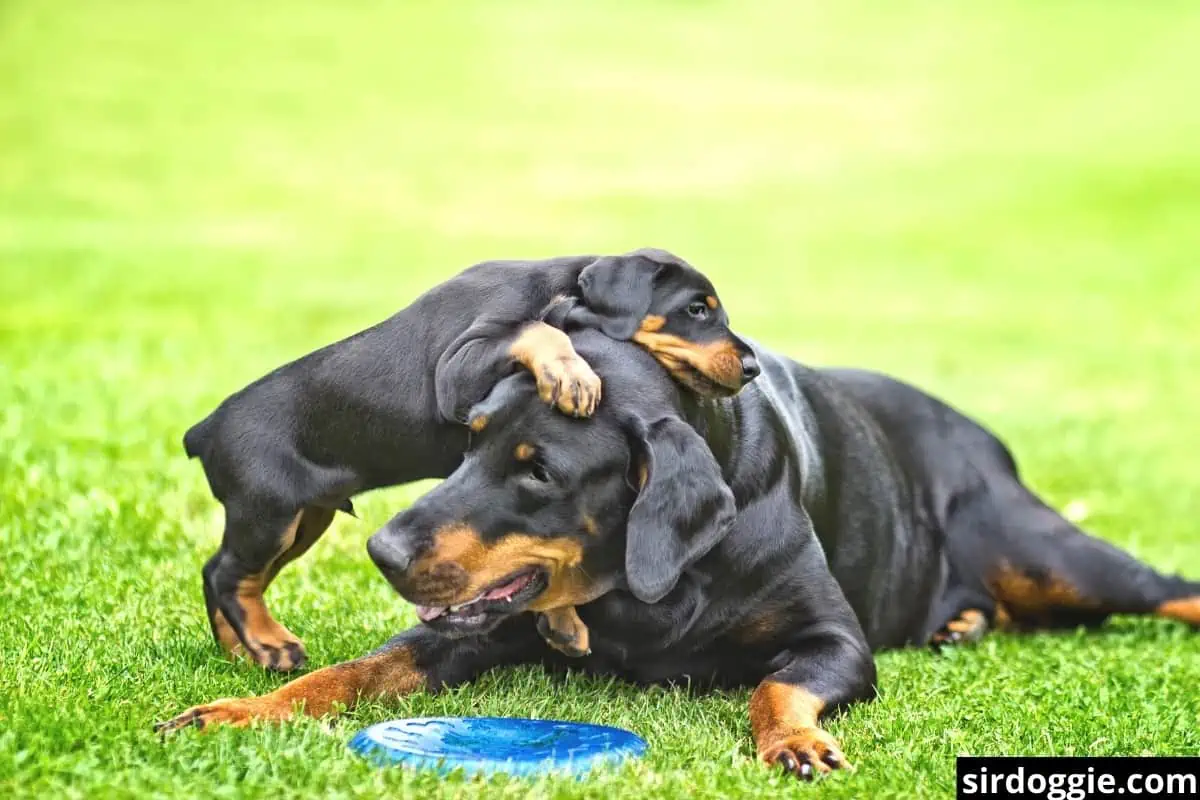
Vitamins and Minerals
Vitamins and minerals play an essential role in a Doberman’s overall health. Dobermans require a variety of vitamins and minerals, including:
| Vitamin A | Calcium |
| Vitamin D | Phosphorus |
| Vitamin E | Potassium |
| Vitamin K | Magnesium |
It’s essential to provide your Doberman with a balanced diet to ensure they receive the necessary vitamins and minerals. Consult your veterinarian for any specific needs your Doberman may have.
Feeding Guidelines
Puppy Feeding
Doberman puppies have different dietary needs compared to adult or senior dogs. How much should you feed them? Puppy feeding should be divided into several meals per day to help their digestion and proper growth.
Here are some guidelines for a balanced Doberman puppy diet:
- High-quality puppy food with appropriate protein and fat levels
- Consult your veterinarian for recommendations and portion sizes
- Gradually transition to new food if you plan to change the brand
Adult Feeding
As your Doberman matures into an adult, their nutritional requirements also change. Now, what is the ideal diet for an adult Doberman?
Consider these factors:
- Feed high-quality adult dog food for optimal health
- Monitor their weight to adjust portion sizes accordingly
- Include lean protein sources, such as chicken or fish

Senior Feeding
As your Doberman enters its senior years, its metabolism slows down. How can you support their changing needs? Nutritional adjustments catered to their specific age and health are essential.
Keep these tips in mind:
- Transition to senior dog food with lower calories and high-quality protein
- Smaller and more frequent meals may help with digestion
- Consult your veterinarian for dietary adjustments based on their health condition
Commercial Dog Foods
When considering the diet of your Doberman, it’s important to explore different types of commercial dog foods. These typically fall into two categories: dry and wet dog foods. Let’s take a look at both in more detail:
Dry Dog Food
Dry dog food, also known as kibble, is a popular choice among Doberman owners because it is convenient and cost-effective. But what should you look for in a quality dry dog food? Some key factors include:
- High-quality protein source (e.g., chicken, beef, or fish)
- Essential fats and carbohydrates for energy
- Fiber for digestive health
- Vitamins and minerals for overall well-being
Is it possible to find a dry dog food with all these essential nutrients? Absolutely, just make sure you take the time to read the labels and choose a product that meets your Doberman’s specific dietary needs.
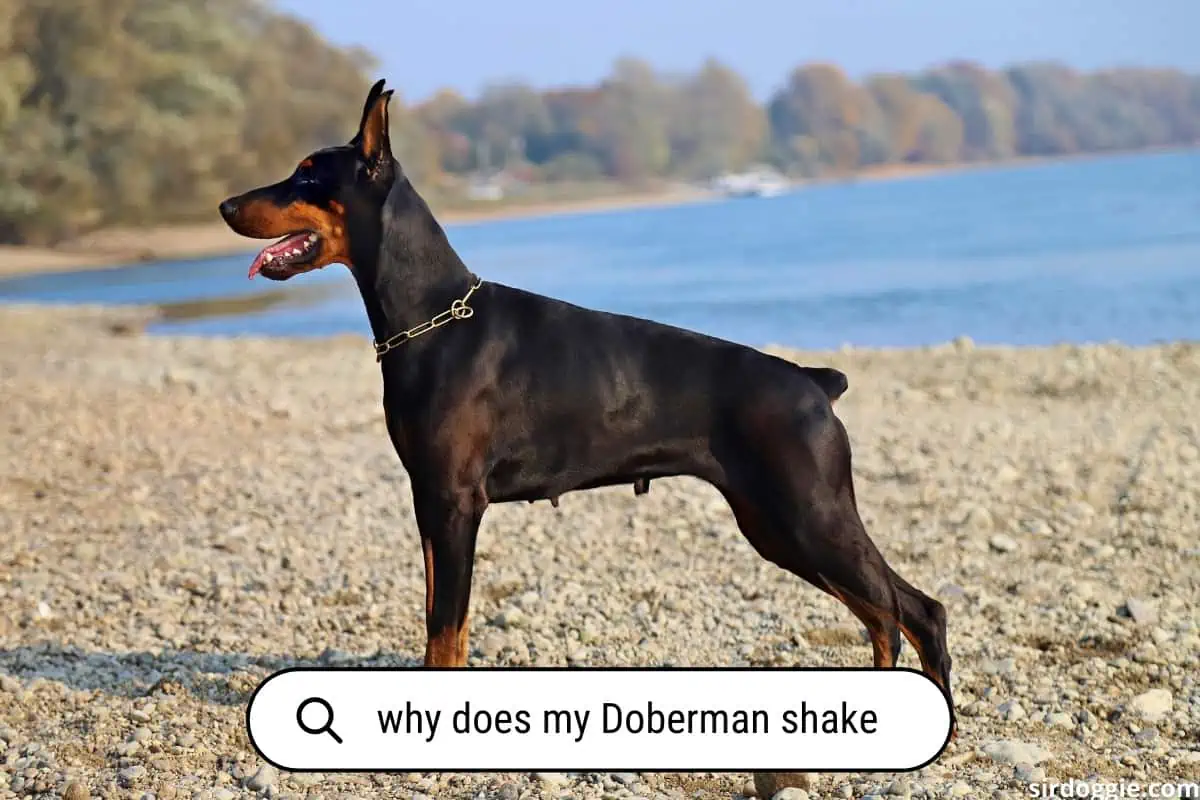
Wet Dog Food
Another option to consider is wet dog food, which typically has a higher moisture content compared to dry dog food. Dobermans may find this type of food more palatable, but what nutrition factors should you look for?
- Complete and balanced formulation
- High-quality protein source
- Fats, carbohydrates, and fiber for a balanced diet
- Necessary vitamins and minerals
How does wet dog food compare to dry? Both can provide sufficient nutrition for your Doberman, but wet dog food may be more expensive and require refrigeration once opened. The choice ultimately depends on your preferences and your dog’s individual needs.
Homemade Diets
If you’re considering a homemade diet for your Doberman, there are several options to explore. Let’s take a look at two popular choices: the raw food diet and the cooked food diet.
Raw Food Diet
Proponents of raw food diets argue that it offers numerous health benefits for dogs. But is it suitable for your Doberman?
- Benefits: Increased energy, healthier skin, and a shinier coat are some benefits Dobermans may experience on a raw food diet.
- Components: A balanced raw diet should consist of raw meats, bones, organs, and a small portion of vegetables.
- Concerns: Proper handling and preparation is crucial to prevent the risk of bacterial contamination and potential health issues.
Cooked Food Diet
Another option for a homemade diet is to cook the ingredients. How does this differ from a raw food diet, and what should you take into consideration?
| Advantages | Ingredients | Considerations |
|---|---|---|
| Easier to digest for some dogs, and reduced risk of bacterial contamination compared to raw food. | High-quality proteins, carbohydrates, fats, and essential vitamins and minerals should be included for a balanced diet. | Consulting a vet or a canine nutritionist is recommended to ensure nutritional balance and portions. |
Whether you choose a raw or cooked food diet, making informed decisions is key. How can you ensure that your Doberman gets the nutrients it needs while keeping potential risks at bay?
Dietary Restrictions and Allergies
Do Dobermans have any specific dietary restrictions or allergies to be aware of? The answer is, yes, they can have certain food intolerances and sensitivities. Let’s discuss what to watch for.
Some common culprits to watch out for include:
- Grains (corn, wheat, soy)
- Dairy products
- Artificial additives and fillers
- Protein sources (chicken, beef)
How can you identify if your Doberman might have a food allergy or sensitivity? Look for common signs such as itching, excessive shedding, dry skin, gastrointestinal issues, or ear infections.
To help your Doberman avoid unpleasant reactions, consider choosing a high-quality, grain-free, and limited-ingredient dog food. Additionally, monitor your dog’s health and consult with a veterinarian when encountering symptoms or to discuss optimal dietary choices.
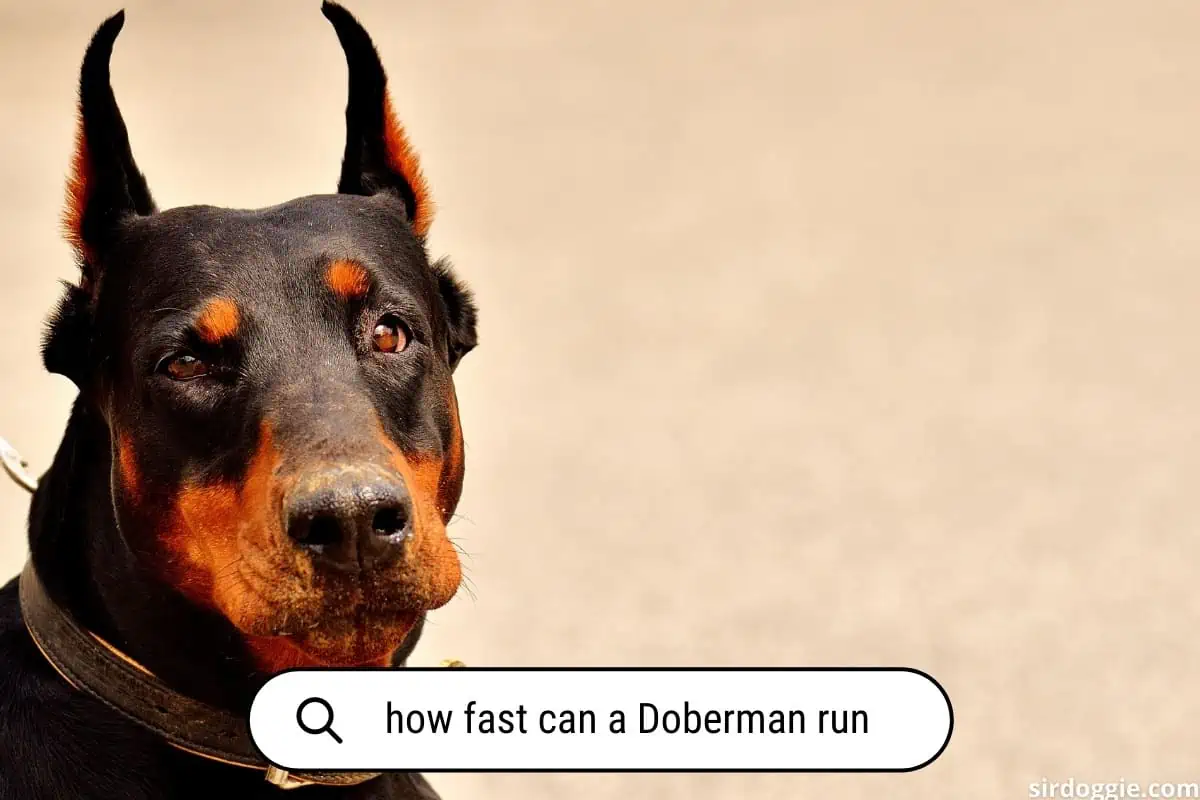
Conclusion
In summary, feeding your Doberman a well-balanced diet with variations in proteins, carbohydrates, fats, vitamins, and minerals is key to maintaining their health and well-being. A proper diet can significantly impact their energy levels, coat health, and overall lifespan. Remember:
- Select high-quality dog food with a mix of protein sources
- Balance proteins, carbohydrates, and fats in their diet
- Include essential vitamins and minerals
- Be cautious of food allergies and intolerances
So, what is the right approach when deciding what to feed your Doberman? Consult with your veterinarian to determine the optimum diet plan tailored to your dog’s needs. You can’t go wrong when you prioritize their health and well-being, can you?

Family Dog Expert Author
Hi there! I’m Stuart, a devoted dog lover and family dog expert with over a decade of experience working with our furry companions. My passion for dogs drives me to share my knowledge and expertise, helping families build strong, loving bonds with their four-legged friends. When I’m not writing for SirDoggie, you’ll find me hiking, playing with my beautiful dog, or studying music.